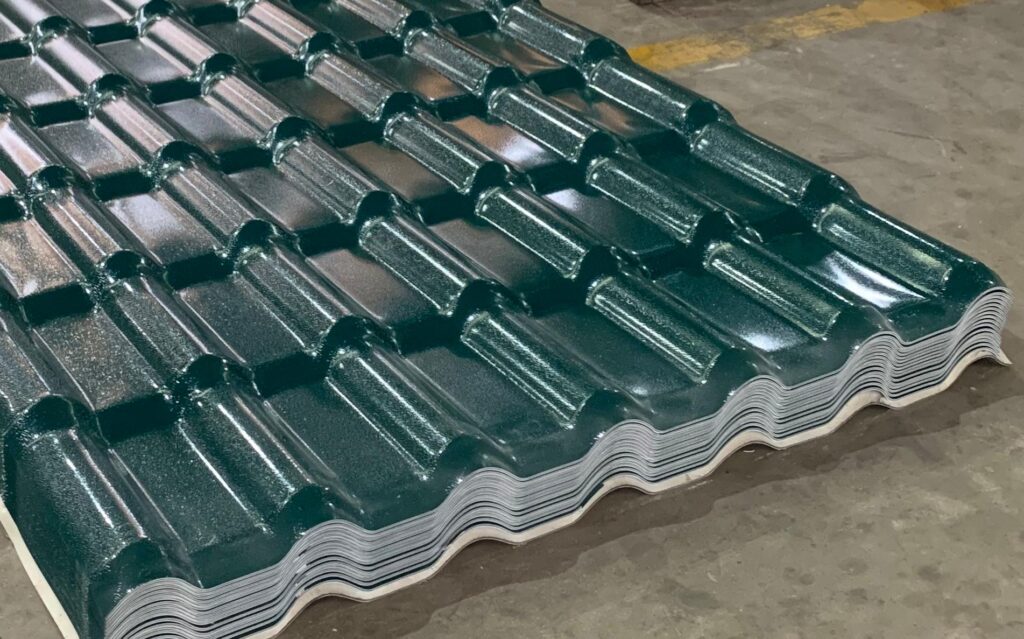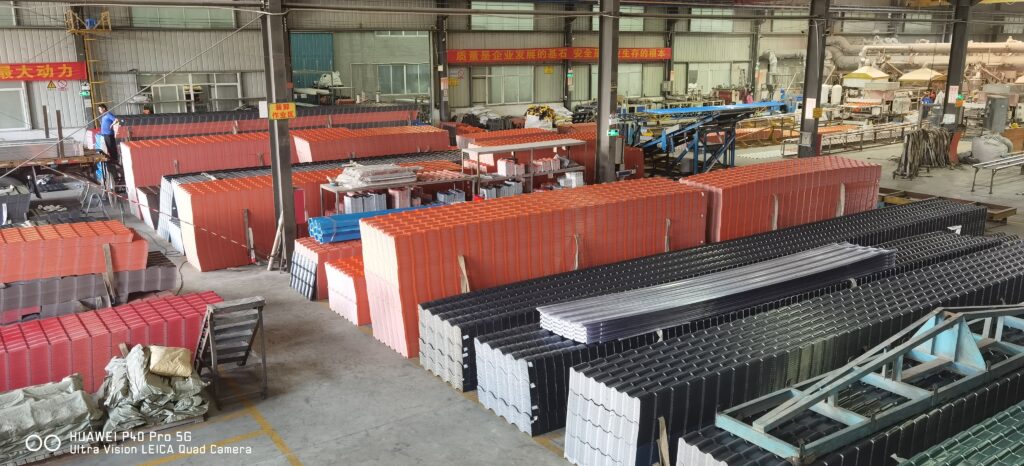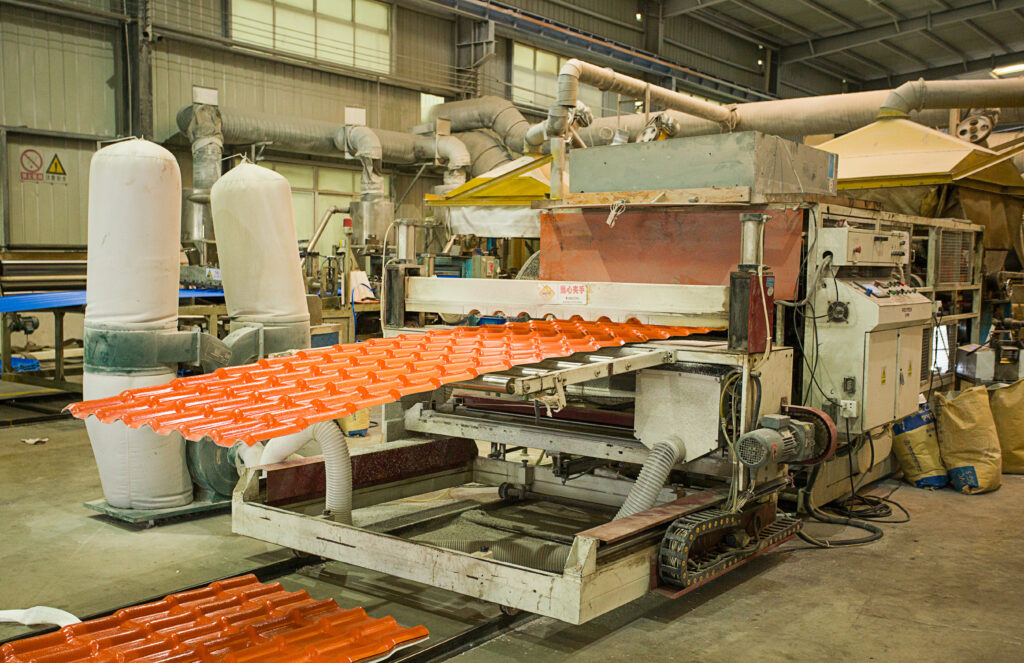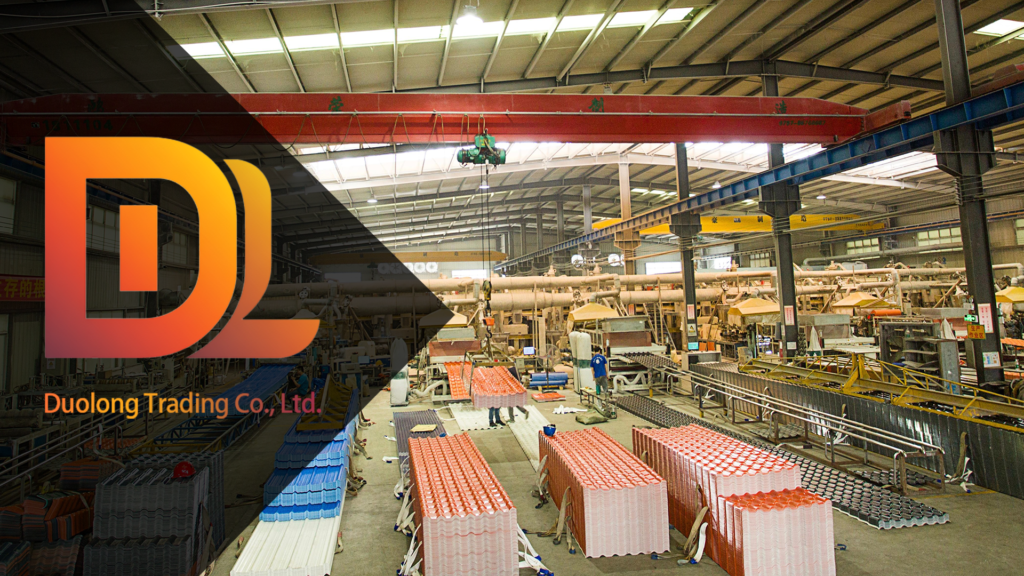Roofing Challenges in Tropical Seasons
In Southeast Asia and the Middle East, the annual typhoon season and periods of extreme heat present serious challenges to building structures—especially rooftops. Frequent exposure to strong winds, torrential rain, intense UV radiation, and high humidity significantly accelerates the aging of traditional roofing materials. Clay tiles, cement sheets, and metal roofs often suffer from cracking, leakage, corrosion, or complete detachment during storms, leading to increased safety risks and maintenance costs for developers and homeowners alike.
In such environments, selecting the right typhoon-proof roofing materials is not just about aesthetics or cost—it’s about structural safety and long-term performance. As regional weather becomes more unpredictable and extreme, builders and suppliers across Thailand, Vietnam, the Philippines, and the UAE are actively searching for solutions that can withstand tropical climates while remaining cost-effective and easy to install.
This is where Duolong’s resin roof tiles come into play. Engineered for durability, UV resistance, and superior weather protection, these tiles are a trusted choice for both commercial and residential projects in hot and humid regions. In this article, we’ll explore why Duolong’s roofing systems provide critical protection during typhoon seasons and extreme climate events—and how they help reduce long-term costs for B2B clients.
Key Roofing Requirements in Typhoon-Prone Regions
In typhoon-prone regions such as the Philippines, Vietnam, Thailand, and parts of Malaysia, rooftops are constantly exposed to severe climate conditions that can compromise structural integrity. Strong winds often reach speeds of over 100 km/h, posing a high risk of roof uplift, shingle detachment, and structural failure if roofing materials are not properly secured or durable enough. Heavy rain combined with lateral wind force can lead to water infiltration through joints, causing long-term leakage and interior damage. In addition, constant exposure to ultraviolet rays and intense heat—especially in tropical climates—accelerates material degradation. Traditional roofing materials like clay, cement, or metal tiles often suffer from cracking, fading, warping, or rusting under these conditions.
Contractors and project developers in these regions require roofing solutions that meet high performance standards in wind resistance, waterproofing, UV stability, and longevity. Materials must be lightweight for easier installation but strong enough to resist dynamic weather forces. They should also reduce the need for frequent maintenance and ensure long-term stability to support project delivery timelines and client satisfaction. These stringent requirements have made typhoon-resistant roofing systems a top priority in material selection for large-scale construction and infrastructure projects across Southeast Asia and the Middle East.

Why Resin Roof Tiles Are Ideal for Extreme Weather Conditions
In regions where climate extremes are the norm rather than the exception, such as Southeast Asia and the Middle East, the choice of roofing materials plays a decisive role in a building’s long-term durability and maintenance costs. Resin roof tiles have emerged as one of the most reliable solutions for these harsh environments, outperforming traditional materials like clay tiles, cement sheets, and metal roofing in both structural resilience and weather resistance. Their popularity continues to grow among contractors and developers who are seeking alternatives that combine strength, lightweight performance, and visual appeal.
The strength of resin tiles lies in their engineered material composition. Unlike clay or cement, which are prone to cracking under stress or moisture absorption, or metal which may rust and deform under prolonged sun exposure, resin tiles are manufactured from ASA and PVC compounds specifically designed for outdoor use. This makes them naturally resistant to UV rays, salt-laden air, and thermal expansion. Even under intense sunlight and fluctuating tropical temperatures, resin tiles maintain their color, shape, and flexibility without warping or becoming brittle. Their lightweight nature also reduces structural load on the building and simplifies transportation and installation, making them a preferred option for large-scale and remote construction sites.
Another key advantage is their wind and impact resistance. With integrated wave patterns and locking systems, resin tiles are less likely to be lifted or displaced during high wind events such as typhoons. Their durable surfaces withstand falling debris and temperature shocks, while maintaining excellent water runoff characteristics. These features not only increase the building’s safety profile but also reduce the frequency of repairs, which is critical for regions with limited access to skilled labor or delayed logistics.
In comparison, traditional tiles often struggle to meet the combined demands of tropical storms, intense sunlight, and humidity. They may look good initially, but within a few seasons, they can become liabilities due to discoloration, breakage, mold growth, or even structural compromise. Resin roof tiles, by contrast, offer a stable and low-maintenance solution with a lifespan of 20 years or more, helping developers, retailers, and property owners avoid recurring costs and maintain a high level of performance throughout the product’s life cycle.
Key Safety Features of Duolong Resin Roof Tiles
Duolong’s resin roof tiles are specifically engineered to address the safety concerns of buildings located in regions with frequent typhoons, intense sunlight, high humidity, and volatile weather conditions. What sets Duolong apart from ordinary roofing suppliers is its commitment to structural innovation and material excellence. The tiles are produced using a multi-layer co-extrusion process, combining a UV-resistant ASA surface layer, a high-impact PVC core, and a reinforced corrosion-resistant base. This composite design enhances mechanical strength and temperature stability while ensuring long-lasting protection in coastal and tropical environments.
The roofing system’s built-in durability is further validated by rigorous testing and certifications. Duolong resin tiles have undergone wind load simulations that replicate conditions of a Category 12 typhoon, confirming that their fastening systems and material integrity can withstand extreme pressure. The tiles also meet internationally recognized fire safety standards, qualifying them for use in commercial, public, and industrial projects that require certified B1 or B2 level fire resistance. On top of that, Duolong follows ISO-compliant manufacturing and quality assurance procedures, which ensure product consistency, traceability, and readiness for global export markets.
These technical advantages are not theoretical—they are proven in the field. Duolong resin roof tiles have been installed in a variety of real-world projects across Thailand and southern Vietnam, where they have endured multiple typhoon seasons without a single report of wind uplift, leakage, or structural compromise. Clients in both government and private sector projects have reported high satisfaction, citing not only the product’s resilience but also the professional service and reliable supply chain support that Duolong provides. In sectors where performance is non-negotiable, such as public infrastructure, coastal villas, and logistics warehouses, Duolong’s roofing solutions are delivering dependable protection year after year.

Reducing Maintenance Costs and Enhancing Project Durability
For developers, contractors, and material distributors operating in Southeast Asia and the Middle East, minimizing long-term maintenance costs is just as important as selecting a structurally sound roofing material. Frequent repairs, re-installations, and aesthetic degradation can quickly erode a project’s profitability and reputation. This is especially true for large-scale public or commercial buildings, where roof surface areas are extensive and labor availability for upkeep is often limited. Duolong resin roof tiles provide a practical solution by offering long-term durability, resistance to environmental damage, and a design that significantly reduces the need for ongoing maintenance.
One of the key contributors to Duolong’s low-maintenance performance is its lightweight yet robust construction. Weighing significantly less than traditional clay or cement tiles, Duolong’s resin tiles simplify installation without compromising strength. Their interlocking wave design enhances structural grip and water drainage, removing the need for costly steel reinforcement or complex support frameworks. This makes them especially cost-effective for projects in rural or remote areas, where logistics and on-site labor costs are harder to control.
More importantly, Duolong resin tiles are engineered for longevity. The ASA surface layer protects against ultraviolet degradation, discoloration, and surface brittleness—issues that typically affect other roofing materials within a few years of exposure to tropical sun and humidity. Duolong tiles have a tested lifespan of over 20 years, during which their physical appearance and mechanical properties remain consistent. This translates into fewer complaints, fewer warranty claims, and less downtime for owners or operators.
From a business perspective, using durable, low-maintenance roofing materials can improve project delivery rates, client satisfaction, and brand credibility. Developers working under tight timelines can benefit from smoother handovers, while distributors and retailers gain a trusted product that minimizes after-sales issues. In today’s highly competitive construction environment, offering a roofing system that reduces both upfront and recurring costs gives companies a measurable advantage. Duolong’s resin roof tiles are not only built to last—they’re built to deliver lasting value across the entire project lifecycle.

Start Your Reliable Roof Protection with Duolong
In today’s world of increasingly unpredictable and extreme climate conditions, choosing roofing materials that can truly withstand storms, heat, and moisture is no longer a luxury—it is a fundamental requirement for building safety. Duolong resin roof tiles were created precisely for this purpose. They are engineered for structural stability, aesthetic appeal, and long-term performance, making them highly adaptable across various project types and sectors.
Whether you’re working on a residential home, a commercial resort, a warehouse, or a public infrastructure project, Duolong offers roofing solutions that are designed to handle the toughest environments. Our tiles resist typhoons, ultraviolet radiation, and corrosion, all while maintaining their color and integrity for years. If you’re searching for a roofing product that delivers reliable protection in tropical climates and high-humidity regions, Duolong is ready to meet that need.
Contact us today to request free samples and expert consultation. We’ll help you choose the right roofing system that fits your project’s safety, design, and durability goals—starting with Duolong.


